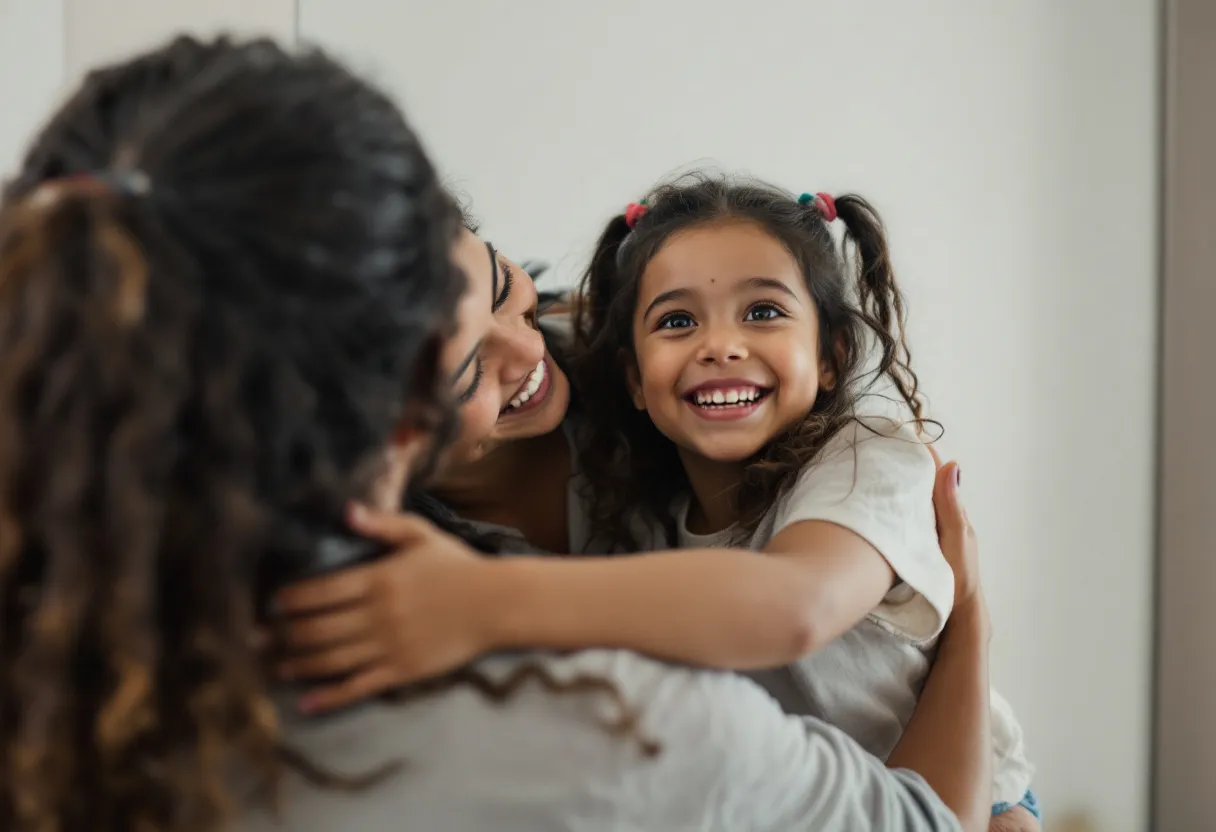As a preschool teacher and a mom, I see body image issues popping up early. Like, really early. Kids? They’re like sponges. They soak up everything. TV, social media, even offhand comments. As parents, it’s on us to build a strong foundation of self-acceptance. Body positivity, too.
But how do we do that? Especially when the world throws unrealistic beauty standards at us 24/7? It’s tough, no doubt. But so important.
I remember my own struggles. Always comparing myself to those magazine models. I don’t want my kiddo to go through that.
Why Early Body Image Matters
Positive body image? It’s not about thinking you’re “perfect.” Nope. It’s about accepting and loving your body. For what it is. And what it can do.
For kids, healthy body image links to better mental and emotional health. They’re more likely to have high self-esteem. They’ll probably engage in healthy behaviors. And? They’ll definitely have a more positive outlook.
When kids feel good inside and out, they’re more resilient. They’re confident. They’re ready to chase their dreams.
Ditching Those Unrealistic Beauty Ideals
Let’s be real. Media often shows a very narrow view of beauty. It’s usually impossible to achieve. Our job? Help kids see through it.
- Be a media critic: Watch shows and movies with your kids. Point out when images are tweaked or just plain fake. Talk about social media filters. How they create a fake sense of perfection. Ask questions. “Do you think this person looks like this in real life?” Or, “How do you think they made this image?”
- Show Diversity: Find books, movies, and toys showing all kinds of bodies. Different ethnicities. Different abilities. Show your children that beauty has many forms. Representation matters! When kids see themselves in the media, they feel accepted. They feel valued.
- Focus on Character: Stop complimenting just looks. Highlight kindness, intelligence, and talents. “That was so thoughtful!” or “You’re a hard worker!” Those messages reinforce inner worth. They really do.
Healthy Habits are Key
Body positivity isn’t about unhealthy stuff. It’s about a good relationship with food and movement.
- Health First: Talk about how healthy foods give us energy. How they help our bodies grow strong. Frame exercise as fun. A way to move and feel good. Not just a way to lose weight.
- No Dieting: Restricting foods leads to cravings. It can also lead to unhealthy eating. Focus on a balanced diet instead. Lots of fruits, veggies, and whole grains.
- Lead by Example: Kids copy their parents. It’s a fact. Eat good meals together. Find activities you enjoy together.
- Lose the Labels: No “good” or “bad” foods. All foods fit. In moderation. Labeling food creates anxiety. And guilt. Instead, talk about “nutrient-rich” foods versus “treats.”
Fighting Body Shaming
Body shaming? It hurts. Whether it’s aimed at us or others. It crushes a child’s self-esteem.
- Watch Your Words: Avoid negative comments. About your body or anyone else’s. Kids are always listening. They internalize those messages. Even “I need to lose weight” is damaging.
- Challenge Shaming: If you hear it, speak up! Say, “That’s not very kind.” Or, “Everyone’s body is different. And that’s okay.”
- Teach Assertiveness: Empower kids to stand up. For themselves and others. Help them practice. “That’s not okay to say.” Or, “I like my body how it is.”
Building Self-Acceptance
Ultimately? It’s about self-acceptance. Teaching kids their worth isn’t about looks. It’s about character, abilities, and uniqueness.
- Spot Strengths: Help kids find their strengths. Encourage them to chase their passions. When they feel good about what they do, they focus less on “flaws.”
- Self-Compassion: Teach kindness. Forgiveness. Especially when they mess up. Everyone has imperfections. It’s what makes us human.
- Celebrate You-ness: Encourage kids to embrace their quirks. What makes them different makes them special.
It takes time. It takes effort. But fostering positive body image? It’s an investment. It pays off big time. By challenging beauty standards, promoting health, fighting shaming, and building self-acceptance, we help our kids. We help them grow into confident, resilient, and happy adults.
It’s a gift that lasts a lifetime.






